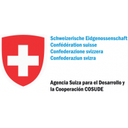Executive Secretary

X Conferencia Científica Internacional sobre Desarrollo Agropecuario y SostenibilidadAGROCENTRO 2023
Agrocentro 2021
Resumen
La manipulación de la dieta de los rumiantes se considera una alternativa viable para mitigar la producción de metano y a la par disminuir las pérdidas energéticas en el animal. El objetivo de la investigación fue evaluar la influencia de la inclusión en la dieta de bovinos lecheros del forraje de Acacia mearnsii sobre la degradación ruminal. El forraje de A. mearnsii se recolectó de árboles plantados en la Facultad de Ciencias Agropecuarias – UTA con dos años y con frecuencia de corte de 90 d. Se conformaron los siguientes tratamientos (Dietas): T1: dieta testigo (0 % A. mearnsii), T2: dieta con la inclusión de (20 % A. mearnsii), T3: dieta con la inclusión de (40 % A. Mearnsii) y T4: dieta con la inclusión de (60 % A. Mearnsii) los que se analizaron mediante el diseño de bloques al azar. Los parámetros de cinética de degradación ruminal y la degradación efectiva de la MS (A: 45,64 %, A+B: 89,7 % respectivamente) y MO (A: 43,2 % y A+B: 89,7 %, respectivamente) fue mayor en el T1 (P<0,05), exceptuándose, la fracción insoluble pero potencialmente degradable (B), (C) de la MS y MO que no mostró diferencias entre tratamientos (P>0.05). Se observó mayor (P<0,05) digestibilidad de la MS y MO en el T1 (74 y 77 %, respectivamente). El pH ruminal no mostró diferencias (P>0.05) entre los tratamientos a las diferentes horas evaluadas. La menor (P<0,01) producción de gas se observó en T1. Sin embargo, la producción de CH4 fue menor (P<0,001) en T2 y la mayor en T4. No obstante, en la producción de CO2 no se observó diferencias (P>0,05) entre los tratamientos evaluados. Se concluye que bajo las condiciones de este estudio la incorporación de A. mearnsii en la dieta de bovinos lecheros afectó negativamente la degradación ruminal, especialmente en niveles superiores al 20 %; sin embargo, favoreció la reducción de la producción de CH4 en inclusiones con bajos de nivel de esta leguminosa.
Abstract
Handling of the ruminant diet is considered a viable alternative to mitigate methane production and at the same time reduce energy losses in the animal. The goal of the research was to evaluate the influence of the inclusion in the diet of dairy cattle of Acacia mearnsii forage on ruminal degradation. The A. mearnsii forage was collected from trees planted at the Faculty of Agricultural Sciences - UTA two years old and with a cutting frequency of 90 d. The following treatments were made (Diets): T1: control diet (0 % A. mearnsii), T2: diet with the inclusion of (20 % A. mearnsii), T3: diet with the inclusion of (40 % A. mearnsii) and T4: diet with the inclusion of (60 % A. mearnsii) which were analyzed using the randomized block design. The rumen degradation kinetics parameters and the effective degradation of DM (A: 45.64 %, A+B: 89.7 % respectively) and OM (A: 43.2 and A+B: 89.7 %, respectively) was higher in T1 (P <0.05), excepting, the insoluble but potentially degradable fraction (B), (C) of DM and OM that did not show differences between treatments (P> 0.05). Higher (P <0.05) digestibility of DM and OM was observed in T1 (74 and 77%, respectively). The ruminal pH did not show differences (P> 0.05) between the treatments at the different times evaluated. The lowest (P <0.01) gas production was observed in T1. However, the production of CH4 was lower (P <0.001) in T2 and the highest in T4. However, in CO2 production no differences were observed (P> 0.05) between the evaluated treatments. It is concluded that under the conditions of this study, the incorporation of A. mearnsii in the diet of dairy cattle negatively affected ruminal degradation, especially at levels higher than 20 %; however, it favored the reduction of CH4 production in inclusions with low levels of this legume.
Sobre el ponente

Dr. Luis Miguel Vargas

INVESTIGADOR EN REPRODUCCIÓN ANIMAL

